Current Scholars
-
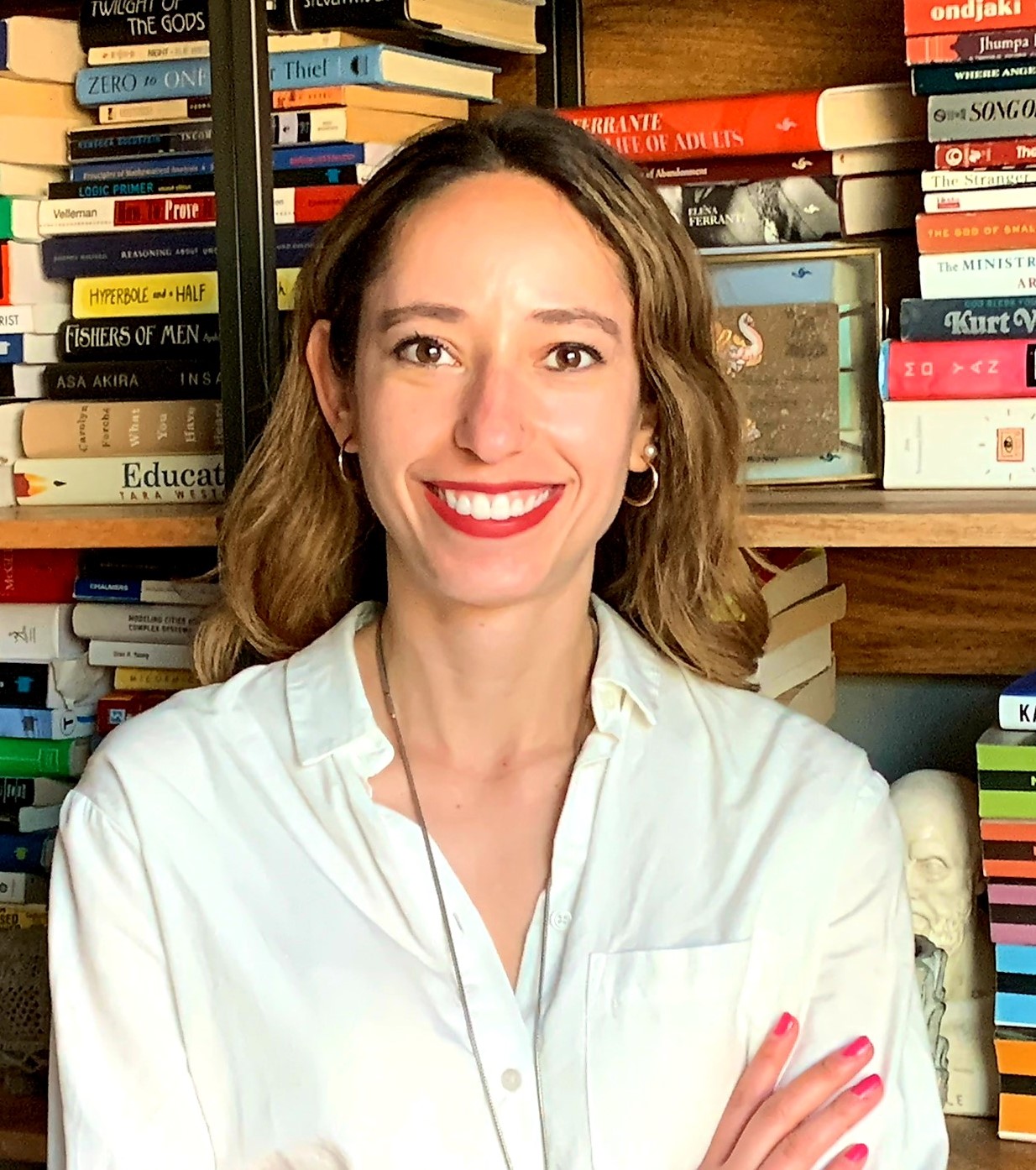
Rebecca Abelman, MD
UCSD Mentors: Sara Gianella Weibel, MD & Scott Letendre, PhD
Home Mentor: Phyllis Tien, MD, PhDDr. Rebecca Abelman is an infectious disease physician, HIV primary care provider, and clinical instructor in the Division of HIV, Infectious Diseases, and Global Medicine at Zuckerberg San Francisco General Hospital at the University of California, San Francisco. Her research is focused on the contribution of biologic sex to lung health among women with HIV compared to their seronegative counterparts and to men with HIV. She has a particular interest in the role of menopause and concomitant estrogen depletion on the development of aging-associated comorbidities among women with and without HIV.
-
Luis Parra-Rodriguez, MD
UCSD Mentors: David Grelotti, MD & Scott Letendre, PhD
Home Mentor: Jane O Halloran, MDDr. Luis Parra-Rodriguez is an Assistant Professor of Medicine in the Division of Infectious Diseases at Washington University in St. Louis. He earned his medical degree from the Central University of Venezuela and moved to the United States for further training. He completed an Internal Medicine residency and chief residency at Cook County Hospital in Chicago, followed by a fellowship in Infectious Diseases and HIV medicine at Washington University in St. Louis. Dr. Luis Parra-Rodriguez subsequently joined WashU's faculty in July 2023. He joined the HIV research community in 2021, and his work so far has been focused on the associations between antiretroviral therapy and mental health outcomes and cardiovascular disease.
-
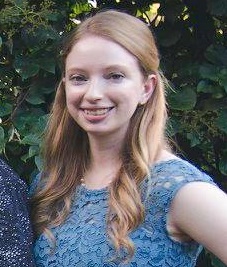
Sarah Cooley, PhD
UCSD Mentors: Amanda Bischoff-Grethe, PhD, David Moore, PhD & Erin Sundermann, PhD
Home Mentor: Beau Ances, MD, PhDDr. Cooley is currently transitioning into the role of Instructor in the Department of Neurology, Division of Neuro-Infectious Diseases at Washington University in St. Louis School of Medicine. Dr. Cooley obtained her B.S. in Psychology from Truman State University, and her M.A. and PhD in Behavioral Neuroscience from University of Missouri St. Louis, where she studied changes to brain integrity over the course of typical aging. In 2016, she joined the lab of Dr. Beau Ances at Washington University in St. Louis and worked as a Data Analyst and Clinical Research Coordinator from 2016-2023. During that time, her work focused on identifying factors that may impact cognitive and structural brain changes in individuals with HIV. Currently, her research interests focus primarily on examining the interaction of aging with HIV and the development of age-related neurodegenerative disorders/diseases, specifically Alzheimer’s disease (AD). Her recent works has studied the presence and cognitive correlates of AD biomarkers in older people with HIV, and she hopes to expand upon this work in larger and older cohorts of people with HIV during her time in the STAHR program.
-
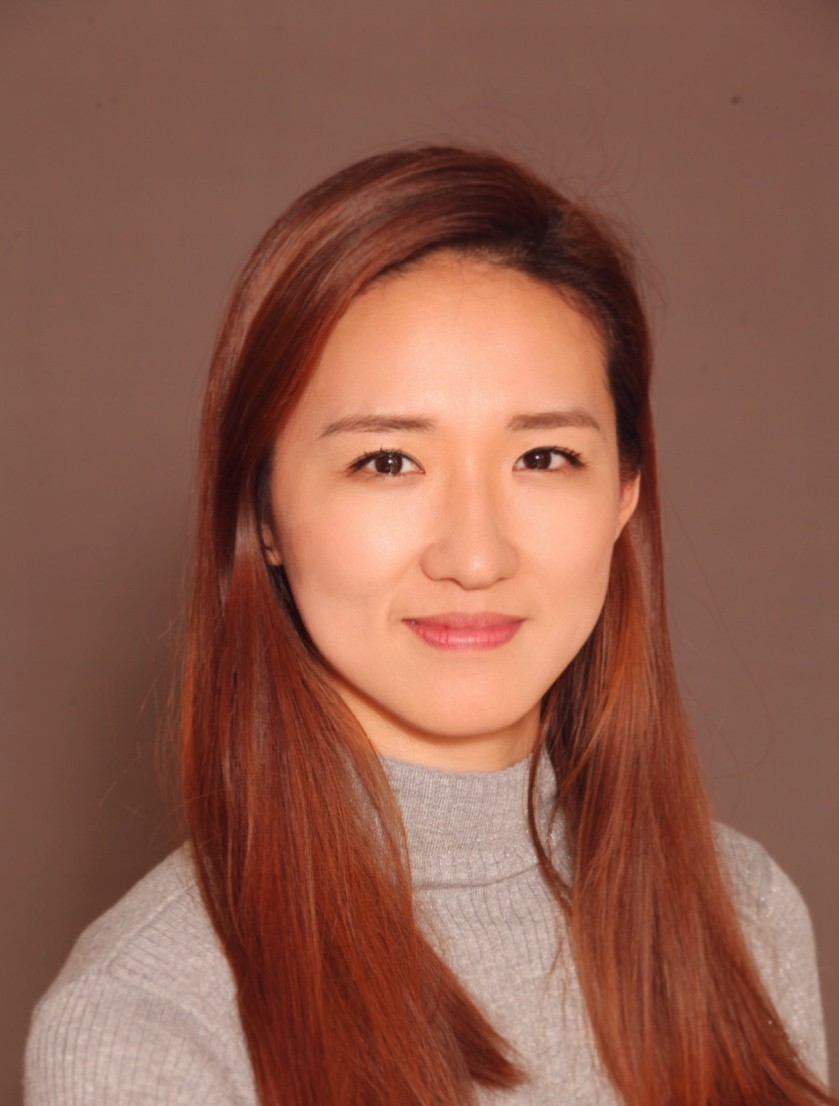
Moka Yoo-Jeong, PhD, RN
UCSD Mentors: Raeanne Moore, PhD, David Moore, PhD & Maile Karris, MD
Home Mentor: Tracey Wilson, PhDMoka Yoo-Jeong, PhD, RN, received her PhD in Nursing from Emory University School of Nursing and completed her comparative-effectiveness research post-doctoral fellowship at Columbia University School of Nursing. She is currently an Assistant Professor at Northeastern University School of Nursing. Her research interests stem from the notion that humans are social beings and that our health behaviors are influenced by social experiences and exposures. Her research program focuses on understanding of the social influences and processes on health and aging over time among vulnerable older adults with multiple chronic conditions, particularly those aging with HIV.
-
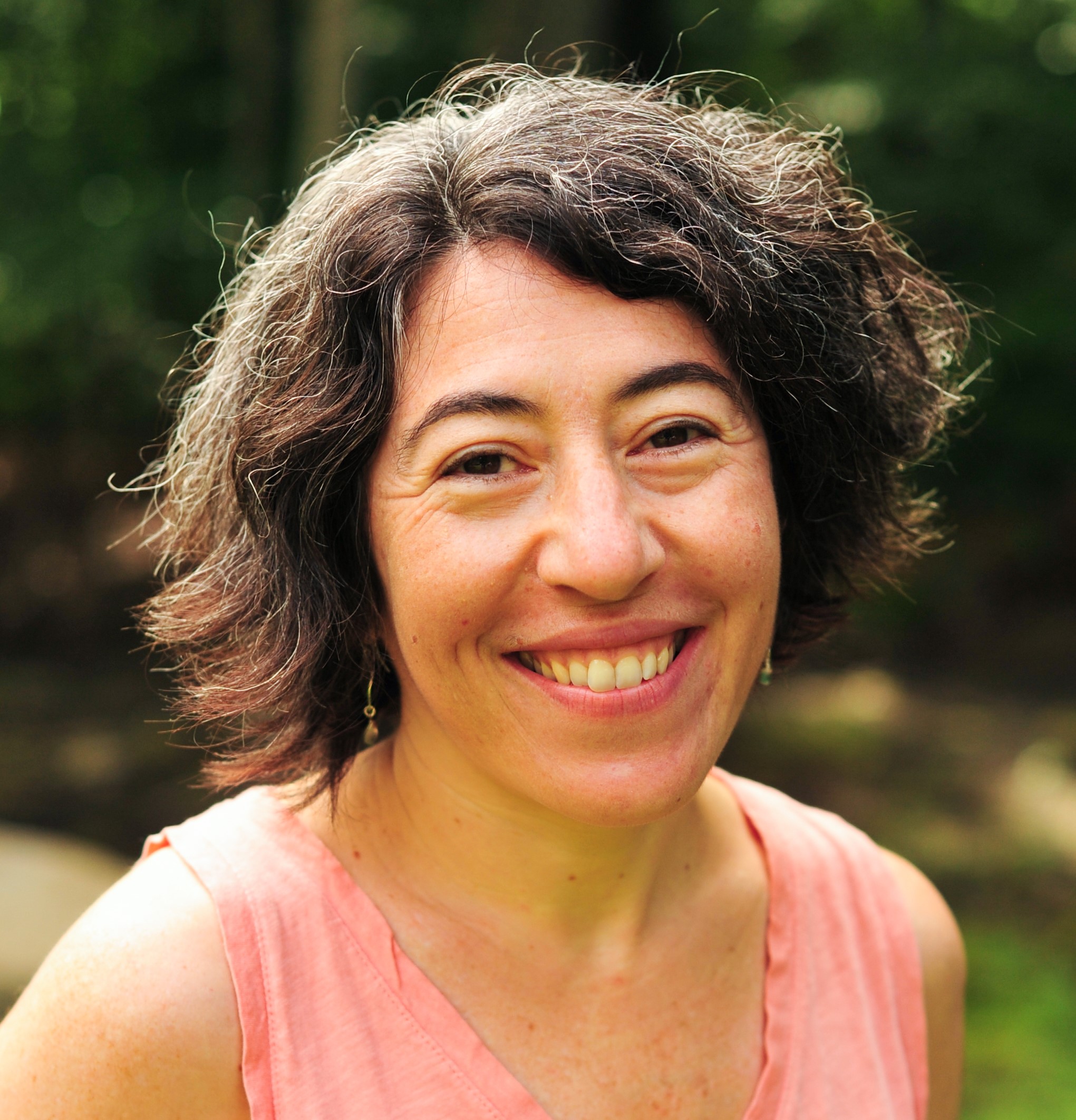
Abigail Baim-Lance, PhD
UCSD Mentors: Annie Nguyen, PhD & Maile Karris, MD
Home Mentor: Nathan Goldstein, MDAbigail Baim-Lance, PhD is a Health Services Research Specialist with the Geriatric Research Education and Clinical Center (GRECC) at the James J Peters Bronx VA Medical Center and an Assistant Professor in the Brookdale Department of Geriatrics and Palliative Care at the Icahn School of Medicine at Mount Sinai. Dr. Baim-Lance is trained in medical anthropology, and conducts qualitative and mixed methods health services research with the aim of improving the quality of services, programs, and interventions for older adults with HIV/AIDS and other chronic conditions.
-

Evelyn Iriarte, PhD, MSN, RN
Evelyn Iriarte, PhD, MSN, RN (She/Her/Ella) is a bilingual nurse with a bachelor’s and master’s degree in nursing from the Pontifical Catholic University of Chile. She earned her PhD in Nursing from the University of Miami, Florida, and her Postdoctoral Fellowship in Aging and HIV at the University of Colorado College of Nursing. Currently, she is an Assistant Professor at the University of Colorado College of Nursing. Her research focuses on the intersection of aging and HIV, particularly among Latinos living in the US. Her work emphasizes HIV prevention, self-management, and addressing health disparities using participatory and community-engaged approaches.
-
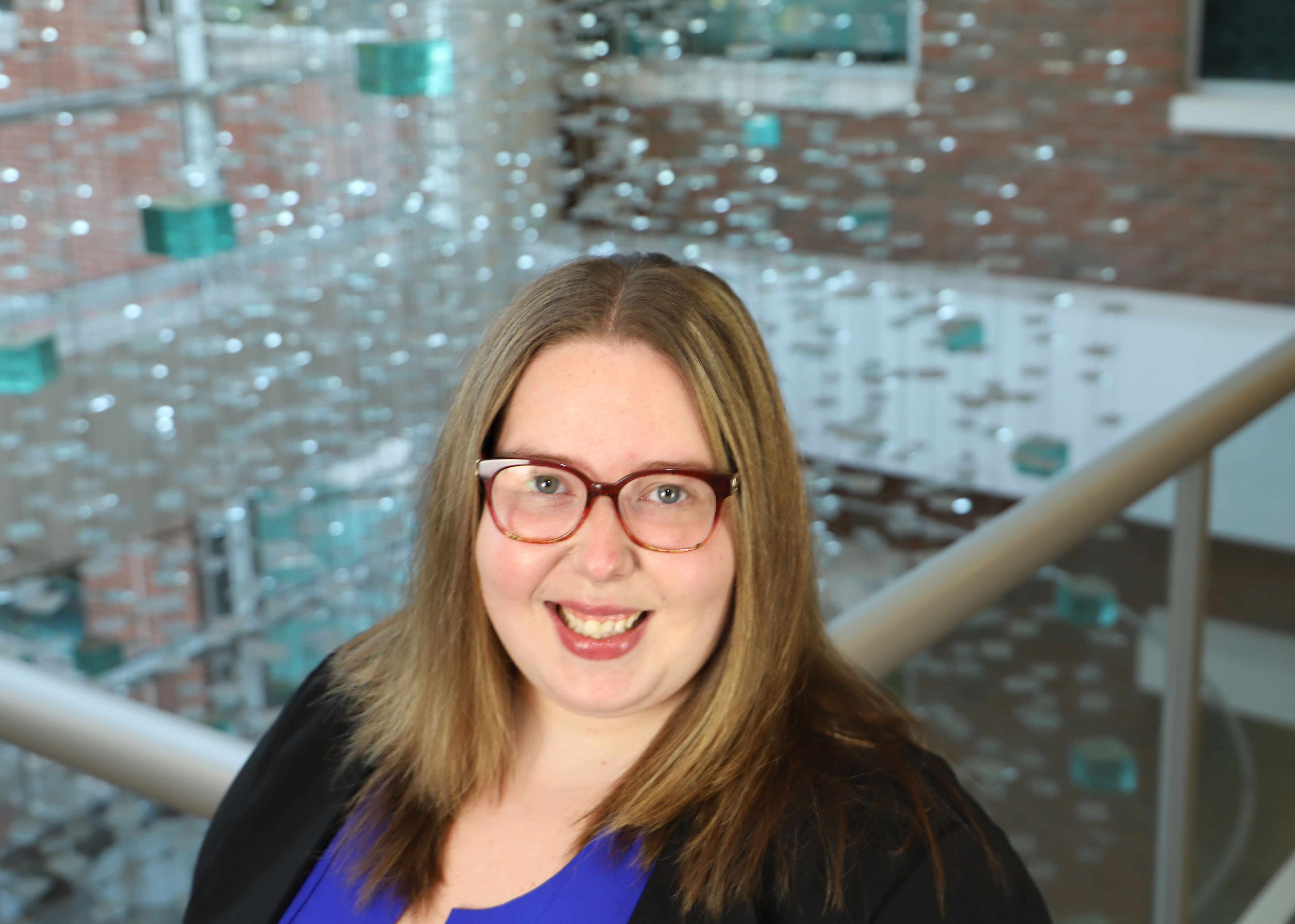
Kristen D. Krause, PhD, MPH
Kristen D. Krause, PhD, MPH (she/her/hers), is an Assistant Professor in the Department of Urban-Global Public Health and the Deputy Director of the Center for Health, Identity, Behavior and Prevention Studies (CHIBPS at the Rutgers University School of Public Health (SPH). She has expertise in HIV/AIDS, aging, resilience, and broader LGBTQ health disparities. More specifically, her work examines resilience as it relates to biological, psychological, social, and cognitive health states among older people living with HIV/AIDS. Previously, she was the recipient of a TL1 Pre-doctoral fellowship at the Clinical and Translational Science Institute at NYU Langone Health, and also received the Stuart D. Cook Excellence in Research Award for her dissertation work from the Rutgers SPH. Dr. Krause serves as the Co Editor in Chief of a new journal geared towards the health and well-being of sexual and gender diverse communities called Annals of LGBTQ Public and Population Health and she is also the Deputy Editor of Behavioral Medicine.
-

Jun Yeong Byun, PhD, MSN
Jun Yeong Byun, PhD, MSN, is a postdoctoral fellow at the University of Alabama at Birmingham School of Nursing. She earned her BSN and MSN from Korea University, where she researched the stigma associated with chronic obstructive pulmonary disease (COPD) in older adults. Her doctoral work at the University of Alabama at Birmingham explored the differences in mental health and quality of life between older individuals with HIV and COPD and those without COPD. Currently, her research focuses on understanding the role of resilience in mitigating depressive symptoms among individuals living with HIV and COPD.
-
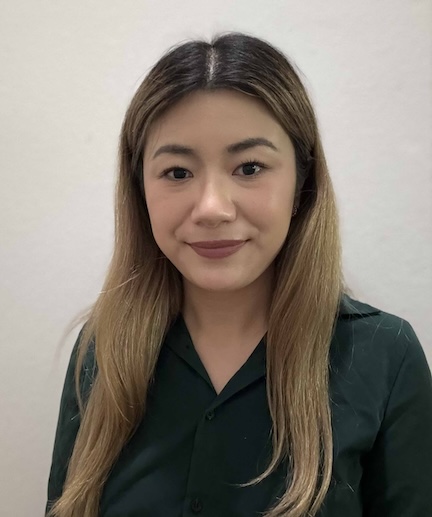
Crystal X. Wang, Ph.D.
Dr. Crystal Wang is a clinical neuropsychologist and currently a postdoctoral research fellow at the UC San Diego HIV Neurobehavioral Research Program. She received a PhD in Clinical Psychology from the University of Southern California in 2022, and completed her clinical internship at the UCSD/VA Internship Program in the neuropsychology track. Her research focuses on both social and biological mechanisms underlying brain health outcomes in people with HIV. In particular, she is interested in the effects of chronic systemic inflammation on HIV-associated neurocognitive impairment and depression. As a STAHR scholar, she will expand her work to inflammation in the gut, and use metabolomics methods to examine the role of pro-inflammatory metabolites or diet in the elevated rates of brain health disorders in people with HIV -
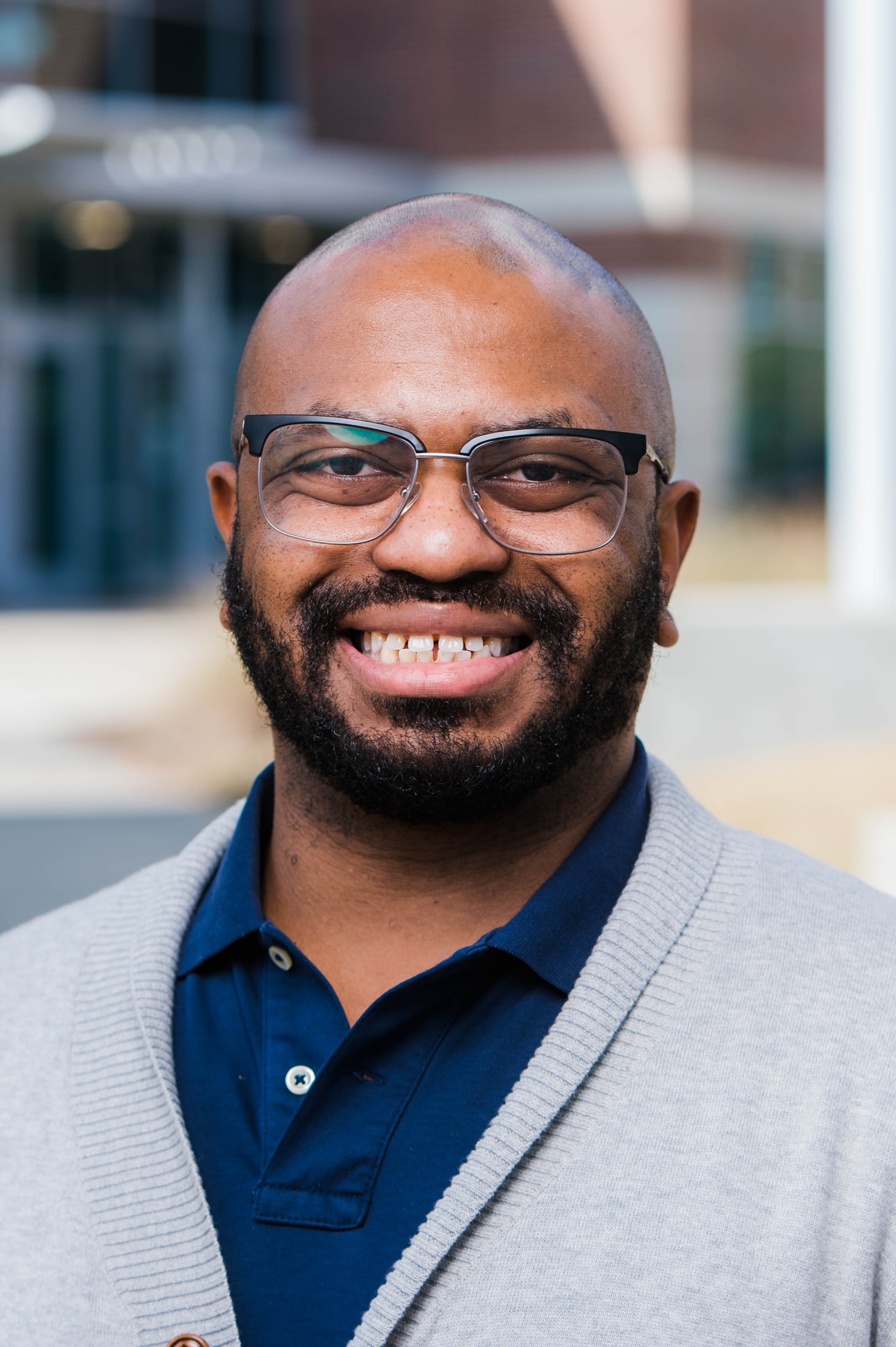
Ray Jones, PhD
Ray Jones, PhD is an Assistant Professor in the Division of Gerontology, Geriatrics, and Palliative Care in the Heersink School of Medicine at the University of Alabama at Birmingham. Dr. Jones co-leads the Clinical Research and Administration core in the Center for Exercise Medicine. He also holds a secondary appointment in the Department of Physical Therapy in the School of Health Professions. Dr. Jones is a trained exercise physiologist and conducts work focusing on the vascular contribution to cognitive aging in older adults living with HIV and other chronic conditions. Dr. Jones, also, implements exercise interventions to combat vascular and cognitive dysfunction in older adults. He has an ongoing K01 focusing on the impact of high-intensity exercise on arterial stiffness and cognition in older adults living with HIV.
-

Casey D. Xavier Hall, M.P.H., Ph.D.
Dr. Xavier Hall has expertise in mixed-methods community-based research addressing sexual, gender, and racial health disparities. Broadly speaking, his work addresses multilevel influences on sexual health, violence, and mental health. He has previous and ongoing funding from the Food and Drug Administration, SAMSHA, and was very recently awarded an R01 as Contact Principal Investigator from the National Institute on Drug Abuse. Dr. Xavier Hall's relevant work strives to address violence, mental health, and cognitive risk among sexual minority men living with HIV.
-
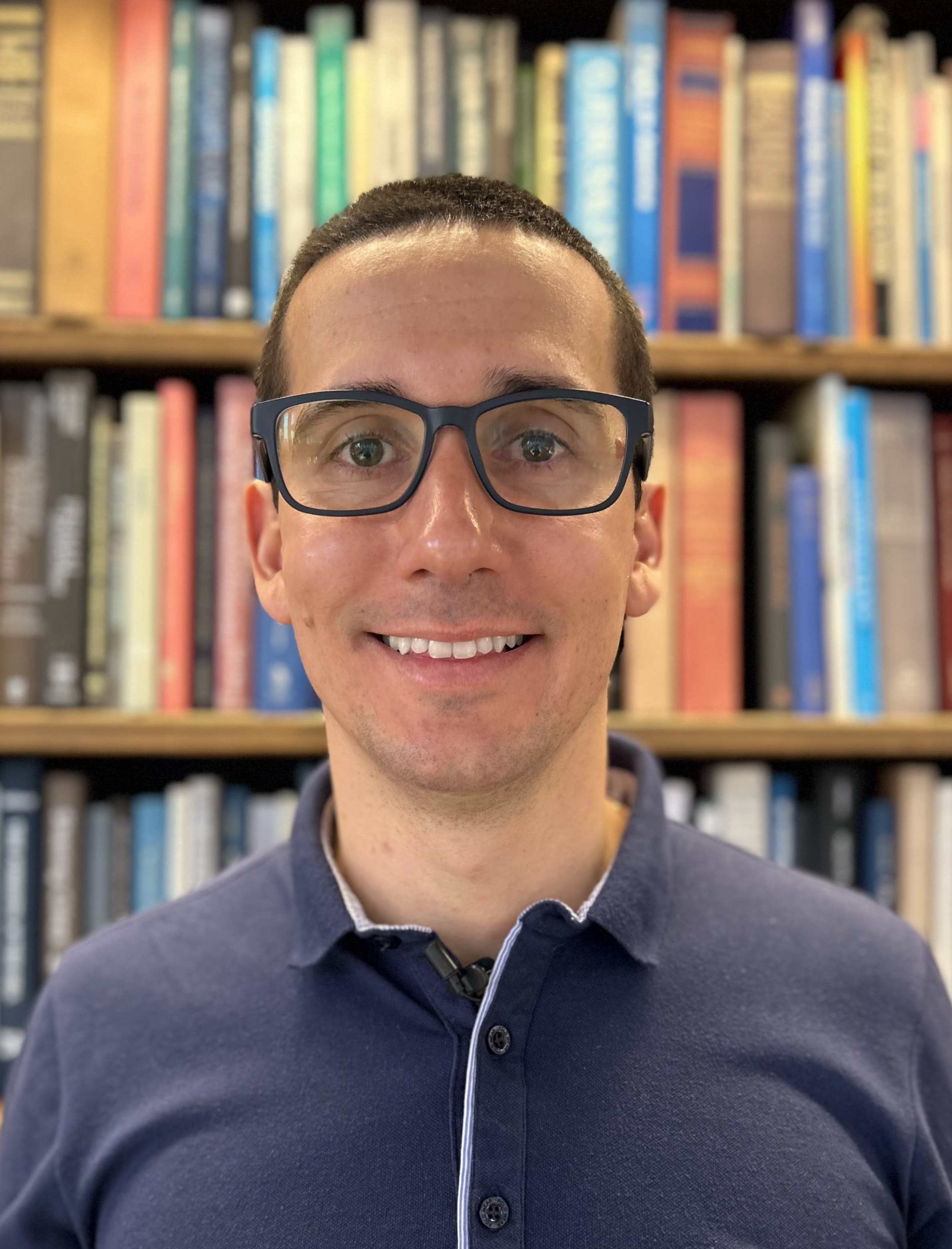
André Pereira dos Santos, Ph.D.
Dr. André Pereira dos Santos is a researcher with expertise in physical activity, HIV, aging, and health outcomes. He currently holds a position as an Acting Instructor at the University of Washington in Seattle. Dr. Santos received his Ph.D. in Health Sciences from the University of São Paulo and his B.A. in Exercise Science. His doctoral research focused on body composition, physical function, and quality of life in people with HIV. His postdoctoral work emphasizes fall risk and the role of exercise interventions, particularly in aging populations. Currently, Dr. Santos serves as a co-leader of international research groups, mentors graduate students, and collaborates on multicenter projects aimed at promoting healthy aging in people with HIV.
-
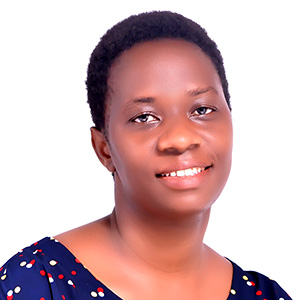
Amutuhaire Judith Ssemasaaazi , MD, MSc.
Dr. Amutuhaire Judith Ssemasaazi is a clinical epidemiologist and internal medicine physician based in Uganda. She earned her Bachelor of Medicine and Bachelor of surgery, Master of Science in Clinical Epidemiology and Biostatistics, and Master of Medicine in Internal Medicine from Makerere University College of Health Sciences, Uganda. She also completed a global health research post-doctoral fellowship with the University of California Global Health Institute. Currently, she is a post-doctoral research scholar at the Infectious Diseases Institute (IDI), Makerere University College of Health Sciences where her research focuses on improving health outcomes of older individuals with HIV and non-communicable diseases (NCDs). She is also a co-investigator in the HEALTHiv cohort, a 10-year longitudinal study investigating non-communicable diseases, geriatric syndromes and related outcomes in people living with HIV in Uganda. Her research explores the effects of the HIV virus on the aging process, and development of age-related syndromes and NCDs in sub-Saharan African populations. Her current work within cohorts of people living with HIV in Uganda aims to reduce the burden of chronic kidney disease (CKD) and its complications-including neurocognitive impairment, frailty, cardiovascular disease, kidney failure and mortality-through development and implementation of risk prediction scores and sustainable CKD screening programs in routine HIV care in Uganda.
-
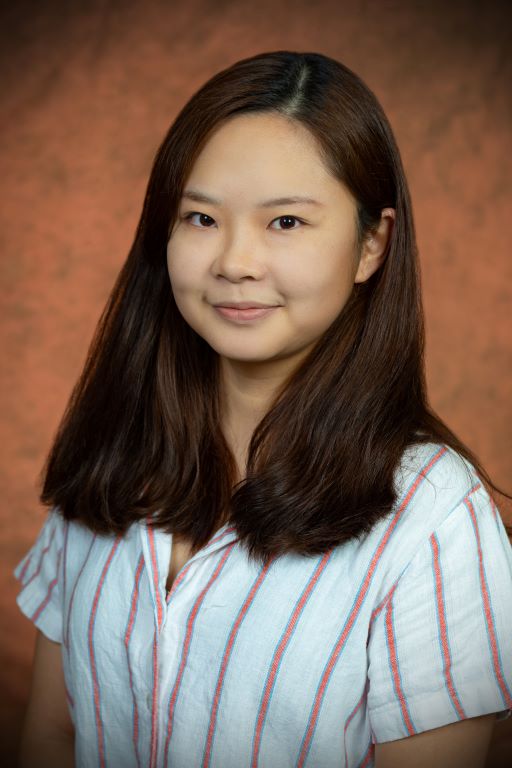
Zhuo Meng, Ph.D.
Dr. Zhuo Meng is a Research Faculty member in the Center for Population Sciences and Health Empowerment (CPSHE) at the College of Nursing, Florida State University. She earned her Ph.D. in Statistics from Florida State University, where her doctoral research focused on methodologies for meta-analysis and publication bias. Her postdoctoral work emphasizes the application of statistical methods to examine physical, mental, and social determinants of health and address health disparities using large-scale administrative data. She is particularly interested in dementia prediction and prevention, precision mental health interventions, and their intersections with HIV.
-
Jasmine Manalel , Ph.D.
Dr. Manalel is a developmental psychologist with expertise in close relationships, informal caregiving, and health across the lifespan, with a focus on adulthood and aging. She currently holds a position as a senior research associate at the Brookdale Center for Healthy Aging at Hunter College, City University of New York. She received her PhD in developmental psychology from the University of Michigan and her B.A. from the University of Virginia. Her doctoral work focused on the structure and function of personal network of children, young adults, and older adults. In her post-doctoral fellowship at the National Human Genome Research Institute at the NIH, she extended her research on personal networks to the support networks of caregivers of relatives with rare genetic diseases or heritable conditions, such as Alzheimer’s disease and related dementias. Currently, Dr. Manalel’s program of research, supported by a K01 from the National Institute on Aging, focuses on the informal support and care networks of older women living with HIV.
-
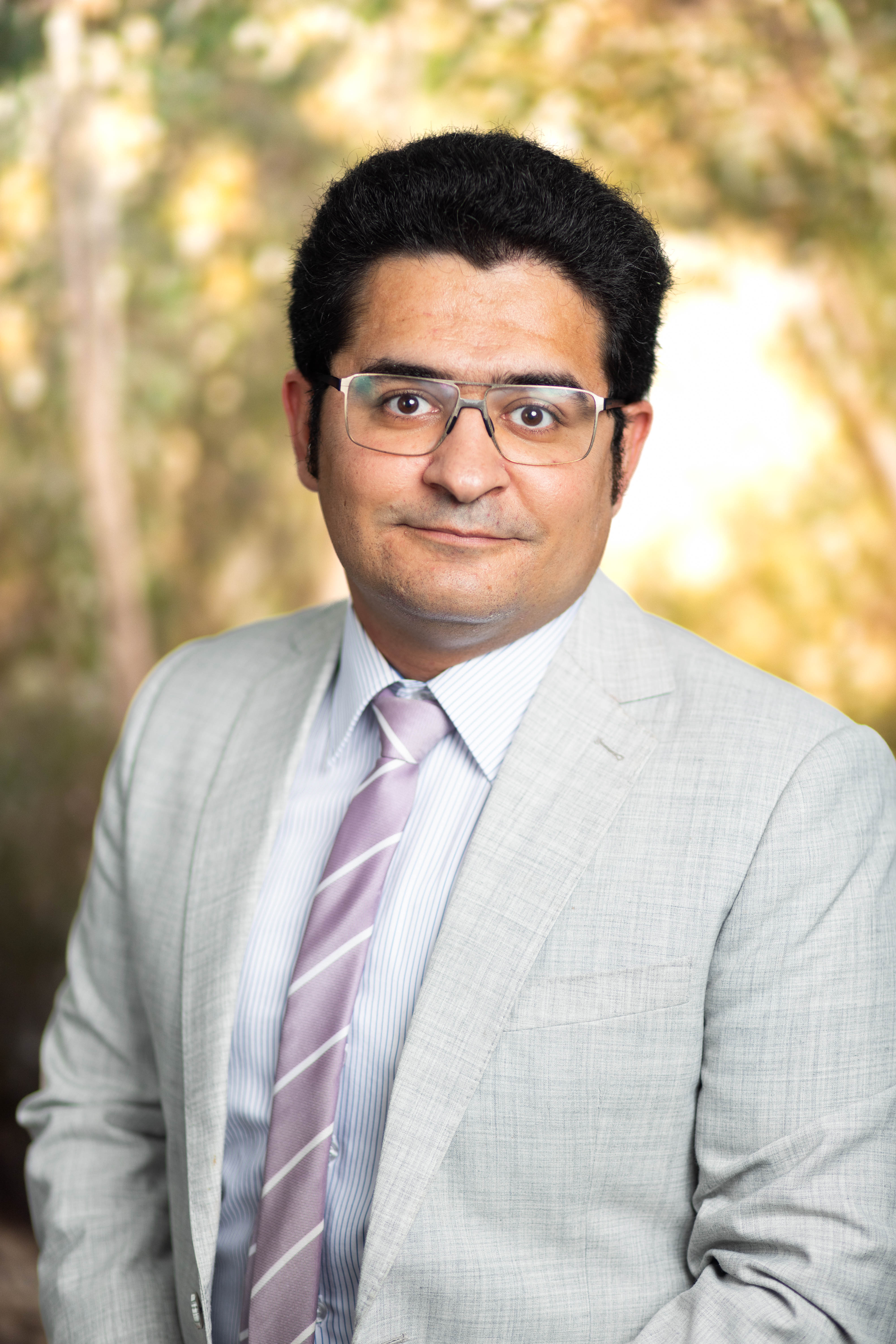
Mohammadsobhan S. Andalibi, M.D.
Dr. Mohammad Andalibi is an early career clinician-scientist specializing in neuroHIV, neuropsychiatric comorbidities, and microbiome science. He is currently a postdoctoral research fellow at both the HIV Neurobehavioral Research Center (HNRC) and the Knight Lab at the University of California, San Diego (UCSD). Dr. Andalibi earned his MD from Mashhad University of Medical Sciences and completed the Interdisciplinary Research Fellowship in NeuroAIDS (IRFN) at UCSD in 2024. His doctoral work centered on the epidemiology and risk factors of neurological disorders. In his postdoctoral research, Dr. Andalibi investigates the interplay between plasma and CSF biomarkers, microbial dysbiosis, and HIV-associated neuropsychiatric disorders, including cognitive impairment, polyneuropathy, and depression. Currently, he integrates multi-omics data including microbiome, metabolomics, and clinical measures to advance understanding of the gut-brain axis and its influence on neurodegeneration and brain health phenotypes in people with HIV.
STAHR Alumni
-
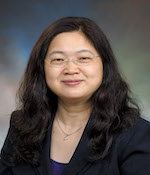
Xiaoying Yu, MD, PhD
UCSD Mentors: Scott Letendre, MDHome Mentor: Yong-Fang Kuo, PhD
Dr. Xiaoying Yu is an Assistant Professor in the Department of Preventive Medicine and Population Health at University of Texas Medical Branch (UTMB). Dr. Yu received a MD degree from Peking Union Medical College, China and her PhD degree in biostatistics from the University of Texas School of Public Health. Before coming to UTMB, Dr. Yu worked as a biostatistician at Northwestern University and Baylor College of Medicine. She has served as core statistician for the Baylor-UT Houston Center for AIDS Research Study for 10 years. Currently, Dr. Yu is a scholar in the Building Interdisciplinary Research Careers in Women's Health (BIRCWH) program. She is focusing on research on HIV and aging and is examining the role of sex as a biologic variable among older HIV infected individuals using large administrative datasets. She is particularly interested in assessing depression and dementia in comparing older HIV+ with HIV− Medicare enrollees. She will also examine the impact of depression and substance abuse for developing dementia among older HIV+ patients. Her long-term goal is to become a successful independent investigator and biostatistician specializing in health services research, with a focus on HIV and aging research.
-
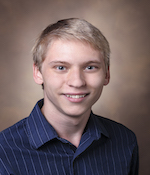
Kalen Petersen, PhD
UCSD Mentors: Mariana Cherner, PhD & Christine Fennema-Notestine, PhDHome Mentor: Beau Ances, MD, PhD
Dr. Petersen is a post-doctoral fellow in the Department of Neurology at Washington University in St. Louis. Dr. Petersen obtained his B.S. in Biology at the University of Tulsa and his Ph.D. in Chemical and Physical Biology at Vanderbilt University in Nashville, TN, where he applied multimodal brain imaging techniques to characterize structure-function relationships in neurological disorders including Parkinson’s disease.
Under the guidance of his mentor Dr. Beau Ances, he joined the HIV research community in 2020 with a focus on accelerated aging of brain function. His work applies machine learning techniques to estimate individuals’ ‘brain-predicted ages’ as a biomarker of neurological dysfunction and a potential predictor of cognitive impairment. Dr. Petersen has expertise in multiple clinically relevant neuroimaging techniques, including characterization of resting-state functional connectivity, measurement of cerebral blood flow, and quantification of white matter integrity.
-

Mary Clare Masters, MD
UCSD Mentors: Ron Ellis, MD & Raeanne Moore, PhDHome Mentor: Frank Palella, MD
Dr. Mary Clare Masters is an Instructor in the Department of Medicine, Division of Infectious Diseases at Northwestern University Feinberg School of Medicine. She received a B.A. in Human Biology from Stanford University and her medical degree from Washington University School of Medicine in St. Louis. She moved to Chicago to pursue her Internal Medicine residency at The University of Chicago followed by a fellowship in Infectious Diseases at Northwestern. Dr. Masters subsequently joined Northwestern’s faculty in 2020.
Her research focuses on long-term outcomes of and comorbidities associated with chronic HIV infection, particularly physical and neurocognitive impairment. Currently, she is investigating the longitudinal relationship between cognitive and physical function in older persons with and without HIV and the impact of metformin use on these trajectories among participants in the ACTG 5322/HAILO and the MACS/WIHS Combined Cohort Studies. This work is supported by a Grants for Early Medical/Surgical Specialists’ Transition to Aging Research (GEMSSTAR) award from the NIA.
-

Judith Lobo, PhD
UCSD Mentors: David Moore, PhD & Amanda Bischoff-GretheDr. Judith Lobo is a cognitive neuroscientist with expertise in neuroimaging methods and inflammatory biomarkers and currently holds a position as a post-doctoral research fellow in as a part of the HNRP at UCSD. She received her PhD in Cognitive Neuroscience from the University of Miami and her B.A. from New College of Florida. Her doctoral work focused on neuroimaging of aging in SuperAgers and brain connectivity associated with inflammation among post-menopausal women living with HIV. Her post-doctoral work emphasizes neuroHIV and substance use using neuroimaging and immunoassay markers of disease progression. Currently, Dr. Lobo is a TRAIN scholar and her current focus bridges brain and peripheral inflammatory mechanisms of aging and substance abuse among people living with HIV.
-

Ankita Garg MSc, PhD
UCSD Mentors: Scott Letendre, MD & Jenny Iudicello, PhD
Home Mentor: Timothy Heckman, PhD & Lisa Renzi-Hammond, PhDDr. Garg is an Assistant Professor in the Department of Infectious Diseases at the College of Veterinary Medicine, University of Georgia. She obtained her PhD in Medical Microbiology from Sanjay Gandhi Postgraduate Institute of Medical Sciences, India. Her Masters is in Microbiology. During her Doctoral training, her research program focused on understanding molecular mechanisms and immune pathogenesis of drug resistant tuberculosis. In her postdoc, Dr. Garg initially worked on the role of natural killer cells and regulatory T-cells in human tuberculosis. Later, at UCSD, Dr. Garg worked on immune dysfunction in HIV-infected individuals with virologic suppression. Her research focuses on infectious and non-infectious co-morbidities associated with HIV infection, with particular emphasis on HIV-M tuberculosis co-infection and neurocognitive co-morbidities, respectively.
-

Asante Kamkwalala, PhD
UCSD Mentors: Ron Ellis, MD & Erin Sundermann, PhD
Home Mentor: Leah Rubin, PhDDr. Kamkwalala is a researcher focusing on clinical cognitive neuroscience, and currently holds a position as a post-doctoral research fellow in the Department of Neurology, Division of Neurovirology and Neuroimmunological Infections at the Johns Hopkins University School of Medicine. She obtained her PhD in Cognitive and Systems Neuroscience in 2019 from the Vanderbilt Brain Institute, in Nashville, TN, and holds a Bachelor's degree in Neuroscience and Behavioral Biology from Emory University in Atlanta, GA. She also recently was awarded a Young Investigator Scholarship to participate in the Conference on Retroviruses and Opportunistic Infections (CROI) 2020.Her research interest focuses on the neurobehavioral consequences of aging with chronic HIV infection, particularly the effects of traumatic experiences and stress. Her post-baccalaureate research work centered on behavioral outcomes of civilian PTSD symptoms in low-income, chronically stressed predominantly African-American urban populations. Her doctoral research focused on cognitive aging, and the dysfunctional neurotransmitter systems that may contribute to the accelerated pattern of cognitive aging in HIV-infected adults, supported by funding through the Vanderbilt Clinical and Translational Science award, as well as a pilot grant from the Vanderbilt Center for AIDS Research (CFAR). Under the guidance of Dr. Leah H. Rubin, MPH, PHD, her current research focus bridges these two previous projects, investigating altered neurophysiological and cognitive correlates of stress exposure and PTSD in PLWH. -
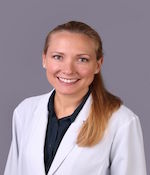
Avery Matthews, MD
UCSD Mentors: Sara Gianella, MD, and Maile Karris, MDDr. Matthews is a full-time clinician at the Audie L Murphy VA medical center in the PRIME clinic, which serves veterans with complex mental health needs. Last year, she completed geriatric psychiatry fellowship at the University of California, San Diego. She received medical degree and a master's degree in basic biomedical science from New York University. Prior to medical school, virology was her focus. She conducted research on coronavirus spike protein at the University of Pennsylvania. She studied herpesvirus at Columbia University, looking at HSV1 ICP27 modeling trigeminal root ganglion infection in mice and performing initial studies on the drug doxovir as a possible treatment. She examined toxin-encoding S. aureus bacteriophages at New York University. As a medical student, she rotated at the Daniel C. Leicht Center for outpatient HIV care at Gouverneur Hospital and in Bellevue Hospital's inpatient HIV service, and she attended an American Psychiatric Association workshop on HIV psychiatry. She plans to meld her clinical interests-- persons living with HIV and older adults with neurodegenerative diseases-- with her research interests in virology. Her proposed research hopes to determine whether herpesvirus central nervous systems infections contribute to HIV-associated neurocognitive disorder. -
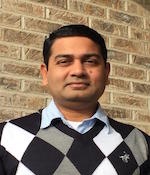
Upal Roy, PhD
UCSD Mentors: David Moore, PhD & Adam Fields, PhD
Home Mentor: Hugo Rodriguez, MDDr. Upal Roy is an Assistant Professor in the Department of Health and Biomedical Sciences at the University of Texas Rio Grande Valley. He received a Ph.D. in Microbiology from Goa University, India and obtained his postdoctoral training at the Tulane University and University of Nebraska Medical Center on HIV drug resistance mechanisms and antiviral drug development research. His research interests include HIV-1 Infection, Drug development and delivery, Therapeutics, and Nanomedicine. He has a long-standing interest in the biological characterization of the drug for its therapeutic potentials in HIV infection. In this regard, he has developed several unique humanized mouse models to reproduce the human immune system and also developed several delivery platforms for targeted drug delivery. His work has always been very multidisciplinary and collaborative. The ultimate goal of his research is to develop next-generation detection and therapy model for people living and aging with HIV-1 infection.
-
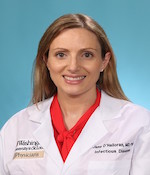
Jane O'Halloran, MD/PhD
UCSD Mentors: Scott Letendre, MD & Mariana Cherner, PhDHome Mentor: Beau Ances, MD/PhD
Dr. O'Halloran is an Assistant Professor in Medicine, Division of Infectious Diseases at Washington University School of Medicine. She studied medicine at the National University of Ireland, Galway. Dr. O'Halloran completed Specialist Registrar training in Infectious Diseases and Internal Medicine in Ireland, where she also did her PhD thesis with Dr. Patrick Mallon at University College Dublin on mechanisms contributing to increased cardiovascular disease in HIV infection. She subsequently went on to do a fellowship in Infectious Diseases at Washington University in St Louis. Dr. O'Halloran joined the faculty of Washington University in St Louis in July 2019. Her research focuses on co-morbidities associated with HIV infection, with particular emphasis on the impact of antiretroviral therapy on cardiovascular, metabolic and neurocognitive co-morbidities. Over the last 18 months much of her focus has been on clinical and translation research in SARS-CoV-2.
-
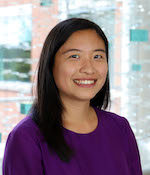
Stephanie Shiau, PhD, MPH
UCSD Mentors: Robert Heaton, PhD & Christine Fennema-Notestine, PhDHome Mentor: Michael Yin, MD
Dr. Stephanie Shiau is an Assistant Professor in the Department of Biostatistics and Epidemiology at Rutgers School of Public Health. She received a PhD and an MPH in Epidemiology from Columbia University and a BA in Public Health Studies from The Johns Hopkins University. After graduate school, she completed a postdoctoral research fellowship at the Gertrude H. Sergievsky Center at Columbia University. She holds a Certified in Public Health (CPH) credential.
Dr. Shiau's interdisciplinary research program focuses on the effects of HIV and its treatment over the life course, seeking to identify modifiable factors that influence trajectories of HIV-associated non-AIDS (HANA) conditions in children, adolescents, and adults living with HIV and affected by HIV. Her work integrates epidemiologic tools, imaging assessments, and laboratory biomarkers, including assays to measure epigenetic markers. Dr. Shiau has established collaborations to study the relationships between epigenetic age, inflammation, cognitive impairment, and frailty in young and older adults living with HIV, as well as substance use in older adults living with HIV. Her K01 is focused on understanding how prescription opioid use affects a growing population of aging adults with HIV in the United States.
-

Michelle Odlum, EdD
UCSD Mentors: Raeanne Moore, PhD & Alison Moore, MDHome Mentor: Michael Yin, MD
Dr. Odlum is an Assistant Professor at Columbia University in the School of Nursing. She holds a Bachelor's in Nursing from Syracuse University and graduate degrees in Public Health and Education from Columbia University. Dr. Odlum is a named HIV Prevention Trials Network (HPTN) Domestic Scholar and the Robert Wood Johnson Foundation (RWJF) New Connections Scholars.
Dr. Odlum's program of research centers on the development of technology-enhanced interventions for improved health outcomes in populations aging with HIV. Accordingly, she intends to explore the complex needs of older adults living with HIV to understand and address the biological, behavioral, psychological and social factors that impact health and quality of life outcomes. She is interested in designing interventions to support symptom self-management. Her current research, includes an NIH funded fatigue self-management pilot intervention, successfully implemented, in a population of Latinos 50 and over aging with HIV. Dr. Odlum's work also includes the development of narrower HIV and aging-related comorbidity phenotypes with greater clinical validity for intervention efficacy. Her published research includes the analysis of clinical data and has identified key differences in comorbidity-related outcomes for HIV infected and uninfected populations.
-
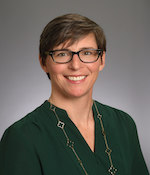
Alexis Bender, PhD
UCSD Mentor: David Moore, PhDHome Mentor: Molly Perkins, PhD
Dr. Bender is an Assistant Professor of Medicine in the Division of General Medicine and Geriatrics at Emory University School of Medicine. Dr. Bender received her PhD in Sociology with a concentration in family, health, and the life course and an interdisciplinary certificate in gerontology from Georgia State University. Dr. Bender's dissertation research investigated the experiences of married couples following traumatic spinal cord injury. Following her graduate work, Dr. Bender worked with the Army Public Health Center in Maryland conducting mixed methods research and evaluation of social and behavioral health among active duty soldiers and their families (e.g. behavioral health access, suicide, violence). Overall, her research is guided by the life course perspective and focuses on aging with disability and chronic diseases, including HIV and substance use disorders. She is interested in how relationships (linked lives) with formal and informal support providers influence physical and mental health outcomes.
-
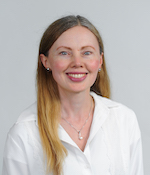
Anna Rubtsova, PhD, MA, MSc
UCSD Mentors: Colin Depp, PhD & Sara Gianella, MDHome Mentor: Marcia Holstad, PhD, FNP-BC, FAANP, FAAN (Professor Emirita)
Dr. Rubtsova is an Assistant Research Professor in the Department of Behavioral, Social, and Health Education Sciences at Emory University Rollins School of Public Health. She received both her PhD and MA in Sociology from Emory University. Her MSc in Social and Organizational Psychology from the London School of Economics (LSE) was funded by a competitive scholarship from the LSE, International Renaissance Foundation, and Foreign and Commonwealth Office. Dr Rubtsova is passionate about women's health and HIV treatment and prevention and serves as a Co-Investigator for MACS/WIHS Combined Cohort Study Atlanta Clinical Research Site. Dr. Rubtsova's current research focuses on the social determinants of health and psychosocial factors related to aging with HIV, and especially frailty and successful aging.
-
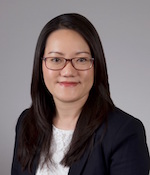
Annie Nguyen, PhD, MPH
UCSD Mentors: David Moore, PhD & Raeanne Moore, PhDHome Mentor: Duke Han, PhD
Dr. Nguyen obtained her PhD in Public and Community Health from the Medical College of Wisconsin, her Master’s in Public Health from Dartmouth College, and a Bachelor of Science in Biology from the University of California, San Diego. She was a participant of the 2015 National Institutes on Aging Butler-Williams Scholars Program and the 2015 RAND Summer Institute. She is the Chair of the Aging and Public Health Section of the American Public Health Association (APHA) and President-elect of the American Academy of Health Behavior (AAHB). Dr. Nguyen is currently an assistant professor in the Department of Family Medicine at the Keck School of Medicine of the University of Southern California (USC).
Her research focuses broadly on quality of life and health outcomes for older adults and particularly, older adults living with HIV. She is interested in the relationship between life stressors and quality of life and health outcomes, conceptualizations of successful aging, and advance care planning for older adults living with HIV. She adheres to community-based approaches in her research, which has been supported by various funding sources including the NIH and private foundations. She is currently the PI of a NIH/NIA K01 career development award.
-
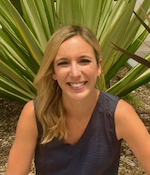
Erin Sundermann, PhD
UCSD Mentors: Mark Bondi, PhD & David Moore, PhD
Dr. Sundermann is a cognitive neuroscientist in the Department of Psychiatry at UC San Diego. Her graduate training started at UCSD in a Psychology Master's program where she conducted research focused on olfactory function as an early indicator of incipient dementia. She then went on to the University of Illinois at Chicago for her doctoral degree in cognitive neuroscience and a postdoctoral fellowship at Albert Einstein College of Medicine in NYC. During her doctoral training, her research program with Dr. Pauline Maki focused on estrogen-related genetic polymorphisms and their association with cognition and brain function in healthy populations and women with HIV. She was fortunate enough to have her doctoral work funded by a Scholar's Grant from the Mount Sinai Institute of NeuroAIDS Disparities (MSINAID) which also involved six weeks of didactic training in NeuroAIDS disparities in NYC. In her postdoc position, Dr. Sundermann worked with the Einstein Aging Study in the investigation of biomarkers and risk factors for cognitive aging and dementia, particularly sex-specific and genetic risk factors.
Dr. Sundermann is an Assistant Adjunct Professor at UCSD. Currently, her research program has two major themes: (1) characterizing sex differences in the trajectory diagnosis, risk factors and biomakers of Alzheimer's disease and (2) investigating the manifestation of Alzheimer's disease in the context of HIV. Along with her colleagues at the HIV Neurobehavioral Research Center, she is part of a project that aims to develop empirical, neuropsychological methods to discriminate HIV-infected individuals that are on the AD trajectory from those with HIV-associated neurocognitive impairment.
-
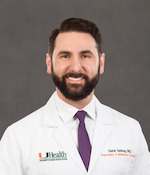
Samir Sabbag, MD
UCSD Mentor: Mariana Cherner, PhDHome Mentors: Deborah Jones, PhDDr. Sabbag is a practicing psychiatrist who is board certified in both adult and geriatric psychiatry. He received his medical degree from Universidad del Norte in Colombia and did his psychiatry residency and geriatric psychiatry fellowship at the University of Miami.
His research interest involves the geriatric population, specifically in the area of functionality, and in the development of strategies that will enable older adults, especially those at risk such as ethnic minorities, cognitively impaired and HIV positive populations, to live independently in the community. He has worked in research involving older ethnically diverse LGBT adults, and in assessments of cognitive and functional capacity of adult patients with severe mental illness, HIV and cognitive impairments, through the use of technology. The main focus of his research has been on Hispanic geriatric populations, the LGBT community, HIV populations, and the effect that these may have in functional and cognitive impairment. He has published various papers and book chapters, and presented findings from his research at important national and international meetings.
-
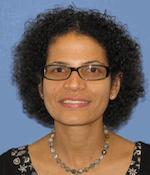
Elizabeth Vásquez, DrPH, MPH
UCSD Mentors: David Moore, PhD & Brook Henry, PhDHome Mentors: Deborah Gustafson, PhD & Mark Kuniholm, PhD
Dr. Elizabeth Vásquez is an Associate Professor in the Department of Epidemiology and Biostatistics at the University at Albany School of Public Health. Dr. Vásquez research agenda aims to examine the individual-level indicators and the ecological impact of social context, which contributes to differential health outcomes in older racial and ethnically diverse populations, in particular Latinos. Dr. Vásquez NIH funded research explores (1) physical activity as a component of health and well-being and its relationship to health outcomes; and (2) the role of psychosocial determinants and behavior among racially and ethnically diverse populations. In addition, her Albany University funded work evaluates mental health disparities across NYS residents during the COVID 19 pandemic. Dr. Vásquez is a fellow with the Sustained Training in Aging and HIV Research (STAHR) program and an affiliated investigator with the Study of Latinos (SOL). She is an alumna of Programs to Increase Diversity among Individuals Engaged in Health-Related Research (PRIDE) and the National Institute of Aging Butler-Williams Scholars Program.
-
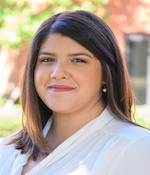
Caitlin Northcutt Pope, PhD
UCSD Mentors: Tom Marcotte, PhD & Raeanne Moore, PhDHome Mentors: Pariya Fazeli Wheeler, PhD & Motau Zhu, PhD
Dr. Pope is an Assistant Professor in the Department of Health, Behavior & Society and the Graduate Center for Gerontology in the College of Public Health at the University of Kentucky. She is also a faculty associate at the Kentucky Injury Prevention and Research Center. She obtained a PhD in Lifespan Developmental Psychology from the University of Alabama at Birmingham and completed a two-year postdoctoral fellowship at the Center for Injury Research and Policy at the Abigail Wexner Research Institute at Nationwide Children’s Hospital. Dr. Pope is a former recipient of the Dwight D. Eisenhower Transportation Fellowship awarded by the U.S. Department of Transportation Federal Highway Administration (FWHA) for her dissertation work on investigating driving behaviors and transportation barriers in those aging with HIV in central Alabama. She is an alumna of the National Institute of Aging Butler-Williams Scholars Program and was most recently awarded a scholar position on a NIH-funded K12 Building Interdisciplinary Research Careers in Women’s Health (BIRCWH) training grant at the University of Kentucky.
Dr. Pope’s research focuses on understanding the complex associations between age-related changes in health and cognition, pathology-related neurocognitive burden, and outcomes that indicate an individual’s ability to maintain safe and independent function in later life. In the context of those aging with HIV, Dr. Pope is interested in investigating the cognitive, emotional, and environmental mechanisms that will help to improve safe mobility and everyday functioning, quality of life, and healthy aging for those living with HIV. Dr. Pope is an editorial board member for the Journal of Safety Research and is a member of The Gerontological Society of America and the Transportation Research Board.
-
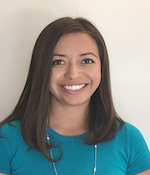
Jessica Montoya, PhD
UCSD Mentors: David Moore, PhD & Alison Moore, PhD
Dr. Montoya is an assistant professor in the Department of Psychiatry at UC San Diego. She is currently supported by a NIDA Mentored Patient-Oriented Research Career Development Award (K23). Dr. Montoya received her doctoral degree in Clinical Psychology with a specialization in Behavioral Medicine from the San Diego State University/UC San Diego Joint Doctoral Program in Clinical Psychology, and she received her B.A. in Psychology from Princeton University.
Dr. Montoya conducts research at the UC San Diego HIV Neurobehavioral Research Program (HNRP), which focuses on 1) implementation of integrated HIV care and substance use disorder services for adults, 2) evaluation of mobile health interventions aimed at promoting health behaviors, such as medication adherence, among complex, challenging patient populations, and 3) identification of plasma-based biomarkers associated with vascular dysfunction and HIV-associated neurocognitive disorders. As part of her involvement in the STAHR program, Dr. Montoya received formal mentorship from Drs. David J. Moore and Alison Moore to examine substance use behaviors among older persons living with HIV and its impact on health outcomes.
-
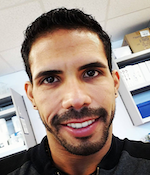
Josué Pérez-Santiago, PhD
UCSD Mentors: Scott Letendre, MD & Maria Marquine, PhDHome Mentor: Valerie Wojna, MD
Josué Pérez-Santiago received a B.S. in Computer Science and a B.S. in Mathematics from the University of Puerto Rico, Rio Piedras Campus. He obtained his PhD in the Bioinformatics and Systems Biology Program at UCSD, where he investigated the gut microbiome in acute and early HIV infection and its association with the pathogenesis of HIV. In his postdoctoral appointment, he transitioned to NeuroAIDS at the HIV Neurobehavioral Research Center at UCSD, in which he evaluated the association of cell-free mitochondrial DNA and mitochondrial genetic defects with neurological damage and neurocognitive decline in HIV infection and methamphetamine use. He is currently an Assistant Professor of Bioinformatics and Computational Biology at the University of Puerto Rico Comprehensive Cancer Center. His work focuses on understanding the role of the human microbiome in aging-related conditions, such as neurocognitive decline, metabolic syndrome, and cancer in HIV infection.
